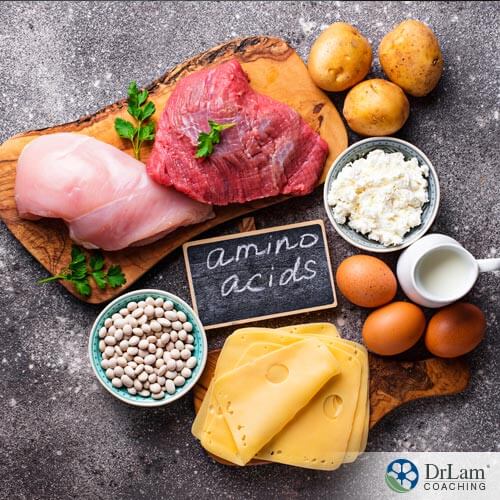 When it comes to muscle building nutrients, protein grabs all the attention. This is because protein is loaded with amino acids which your muscles are made of. However, there are other nutrients that help promote muscle growth as well. Hormones play a significant role in adding muscles to your body. Though muscle building pills, injections, and creams are known to give results, they can also lead to serious psychological and physical side effects, leading to them being banned in several countries. Instead, the best path to safe muscle building is through nutrient-rich foods that naturally boost your muscle growth hormones.
When it comes to muscle building nutrients, protein grabs all the attention. This is because protein is loaded with amino acids which your muscles are made of. However, there are other nutrients that help promote muscle growth as well. Hormones play a significant role in adding muscles to your body. Though muscle building pills, injections, and creams are known to give results, they can also lead to serious psychological and physical side effects, leading to them being banned in several countries. Instead, the best path to safe muscle building is through nutrient-rich foods that naturally boost your muscle growth hormones.
Exercising offers numerous health benefits including helping to build muscles, strengthen your body, and boost the healthy secretion of hormones. However, workouts also exert stress on your body leaving you fatigued. This is because every cell from your brain, to your heart, to your gut works hard to maintain bodily functioning throughout a rigorous workout. Moreover, when it comes to muscle building, rigorous physical training can be a major physical stressor and can leave your body exhausted and depleted of resources.
This is why it is crucial to fuel your body with foods rich in muscle building nutrients. They help replenish your body’s energy reserves and promote muscle growth so your body has what it needs to face the stress of workout sessions. They also help fight the muscle cramps that can result from rigorous workout sessions.
Hormones play a crucial role in many bodily functions including helping to build and strengthen muscles. Most of the hormones are secreted by glands situated throughout your body which are collectively referred to as the endocrine system. The effect of hormones remains for a specific period. Therefore, they need to be secreted and released into the bloodstream at precise times to ensure optimal balance within your body.
It’s essential that your body has enough of the hormones it needs, at the right times before, during, and after you workout, to cope properly with the stress placed on your body. Stress happens anytime your body feels it needs to prepare to face a threat, whether that is a disagreement, a hungry lion, or running a marathon.
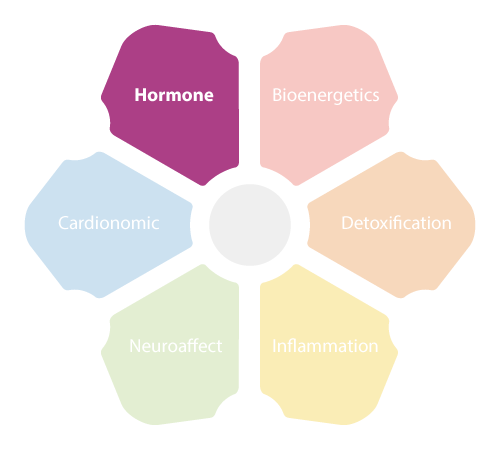 There is a natural stress-fighting mechanism in your body referred to as the NeuroEndoMetabolic (NEM) Stress Response System. It is an intricate network of organs and systems comprising six circuits, including the Hormonal circuit, which function in close coordination to help fight stress. A pair of walnut-shaped adrenal glands located above your kidneys is also a part of the response system.
There is a natural stress-fighting mechanism in your body referred to as the NeuroEndoMetabolic (NEM) Stress Response System. It is an intricate network of organs and systems comprising six circuits, including the Hormonal circuit, which function in close coordination to help fight stress. A pair of walnut-shaped adrenal glands located above your kidneys is also a part of the response system.
When your body detects stress, the NEM signals your adrenal glands for secretion of the anti-stress hormone cortisol. However, constant stress exerts pressure on your adrenals for secretion of more cortisol. With time, this can overburden the adrenal glands until they are no longer in a position to secrete adequate anti-stress hormone. This reduces your body’s stress-fighting ability and leads to adrenal fatigue.
If you frequently experience extreme fatigue along with symptoms of low energy levels, difficulty in waking up, insomnia, brain fog, constipation, anxiety, stubborn weight gain, or low concentration levels then you might have Adrenal Fatigue Syndrome (AFS).
The important thing to note about adrenal fatigue is that it frequently leads to hormone imbalances, which can make it very difficult for your body to cope with exercise.
The Hormonal circuit of your NEM system includes the ovaries/testes, adrenal glands, and thyroid. It is responsible for regulating body temperature, stress hormones (including cortisol), and thyroid function. Imbalance in the Hormonal circuit can lead to reduced libido, fatigue, infertility, miscarriage, hair loss, weight loss, and sluggish thyroid.
Several hormones play a crucial role in muscle building and strengthening. Stimulating the production of growth hormones can help build muscles. There are various muscle building supplements in the market but have considerable side effects. Therefore, natural methods such as nutrition and exercise are considered much safer for the stimulation of muscle building hormones.
The path to successful muscle building is to keep your anabolic hormone levels high and catabolic hormone levels low. Testosterone, DHEA, pregnenolone, and growth hormone (GH) are anabolic hormones that boost strength and stimulate muscle growth. On the other hand, cortisol, epinephrine, and glucagon are catabolic hormones that increase the availability of glucose, a primary source of fuel in your body. Finally, insulin assists in the storage of glucose in muscles for future use. Managing the muscle building hormones effectively helps to optimize your muscle growth. For successful muscle building, it is crucial to keep your cortisol levels low and testosterone levels high.
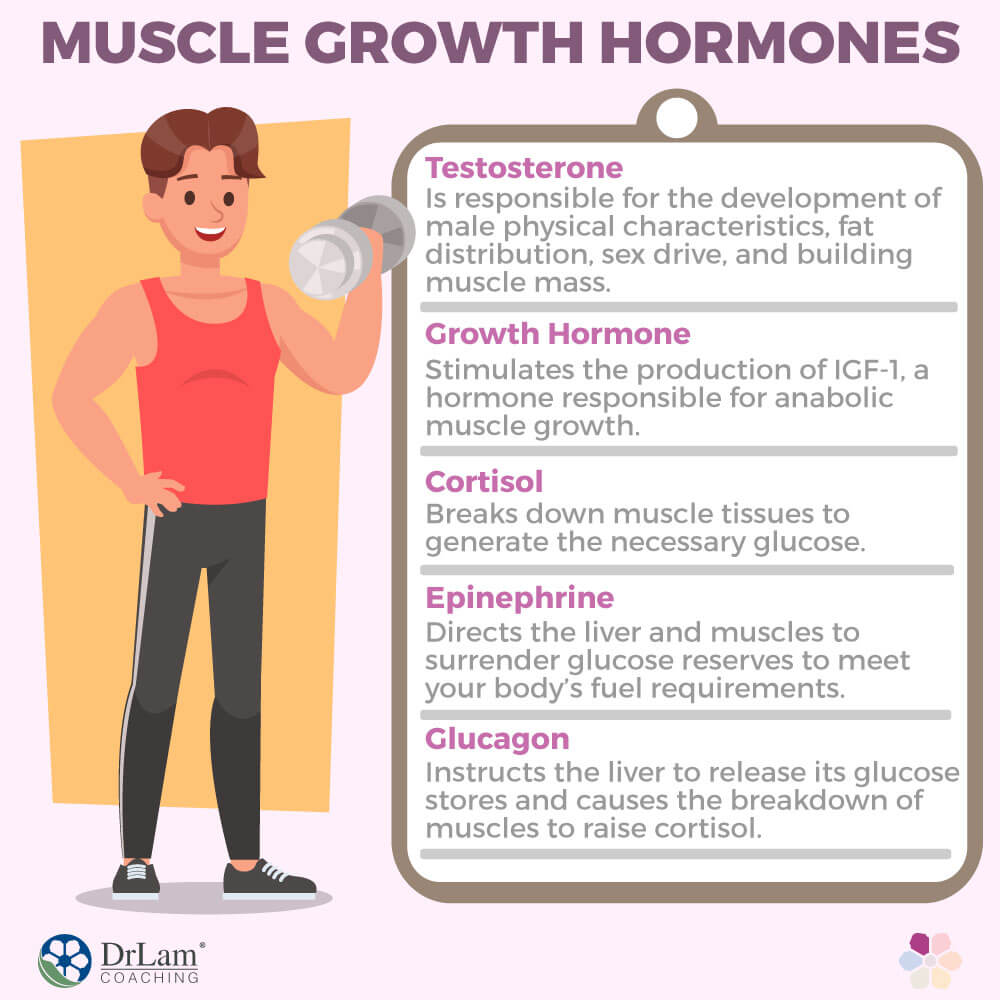
Here are key hormones responsible for muscle growth:
The most important muscle-building hormone, testosterone, also known as the male hormone, is responsible for the development of male physical characteristics, fat distribution, sex drive, and building muscle mass. Though mainly secreted by the testicles, testosterone is also produced by the adrenal glands. In women, the adrenal glands and ovaries secrete testosterone in lower quantities. Testosterone is both an anabolic and androgenic steroid hormone. Supplementary anabolic steroids have been popular for building muscles but have been banned owing to their potential side effects.
The pituitary gland secretes growth hormone (GH) which in turn stimulates the liver for the production of IGF-1, a hormone responsible for anabolic muscle growth. Secretion of GH reduces as you age resulting in muscle degeneration.
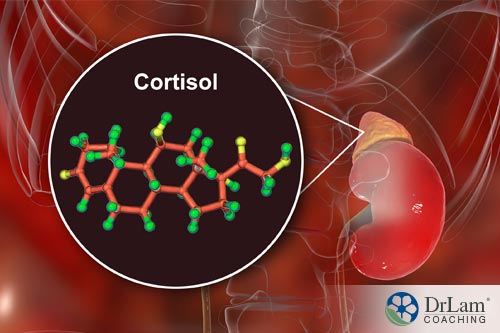 Your adrenal glands produce cortisol in response to stress. Cortisol is an anti-stress and catabolic hormone. During strenuous muscle-building exercise, the circulating glucose supply in your body is used up, which can lead to low blood sugar. In such cases, to meet your body’s fuel requirements, cortisol breaks down muscle tissues to generate the necessary glucose.
Your adrenal glands produce cortisol in response to stress. Cortisol is an anti-stress and catabolic hormone. During strenuous muscle-building exercise, the circulating glucose supply in your body is used up, which can lead to low blood sugar. In such cases, to meet your body’s fuel requirements, cortisol breaks down muscle tissues to generate the necessary glucose.
Similar to cortisol, epinephrine (adrenaline) is a catabolic hormone. Epinephrine is also referred to as the “fight or flight” hormone as it helps your body rapidly respond to stress. When stress arises, epinephrine constricts the arteries and raises blood pressure levels. It also constricts the airways for efficient respiration. During strenuous workouts, the hormone directs the liver and muscles to surrender glucose reserves to meet your body’s fuel requirements.
It functions similar to insulin. When on a fast or a low-carb diet, your body can run out of glucose. Glucagon instructs the liver to release its glucose stores. The hormone also causes the breakdown of muscles to raise cortisol which stimulates glucose production.
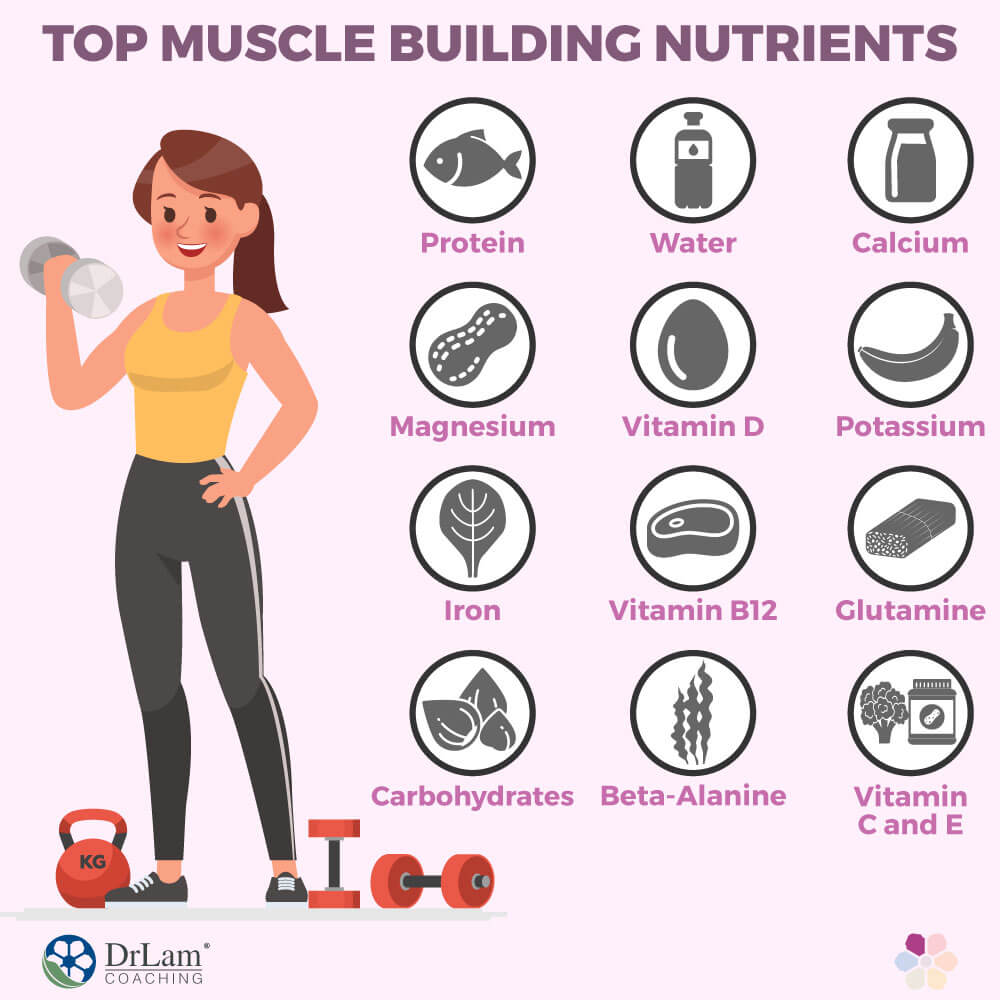
Nutrients are essential for nourishing and building your muscles. Providing your body with the right nutrients is the cornerstone of muscle building and strengthening. These top muscle building nutrients can significantly boost your muscle growth:
Protein is one of the most essential muscle building nutrients. Proteins are high in amino acids which your body also contains but is unable to make. Strenuous exercise can lead to muscle degeneration. Making sure you eat some protein post-workout helps repair and restore muscles. Protein also helps build lean body mass as well as maintain healthy levels of various hormones in the body. Beans, soy, dairy, seafood, meat, and eggs are rich sources of protein.
Drinking adequate water is important to keep you hydrated during workouts. It also helps aid digestion and improves nutrient absorption. Therefore, make sure to drink water during and after your workouts. Certain fruits and vegetables such as watermelon, strawberries, cantaloupe, oranges, iceberg lettuce, and cucumber also have abundant water content to help you rehydrate.
Calcium promotes strong bones and healthy muscles. Getting an adequate amount of this nutrient reduces the risk of osteoporosis. Calcium also plays an essential role in muscle contractions, which regulates the way your body stores and utilizes energy. Tofu, cheese, spinach, yogurt, and milk are good sources of calcium. Excess calcium can be problematic, however, and it should be balanced with magnesium.
If you experience unusual tiredness, then magnesium deficiency could be one of the reasons. Magnesium in Mag Three helps to relax your muscles and prevent cramps. Both magnesium and calcium help promote better sleep and reduce blood pressure levels. Legumes, whole grains, leafy greens, squash, nuts, and seeds are rich sources of magnesium. Excessive magnesium can lead to diarrhea, and in some people such as those with AFS, the paradoxical reaction of anxiety can occur.
Vitamin D is one of the important muscle building nutrients which also promote strong bones. Vitamin D in D5000 Plus has been linked with the healthy secretion of testosterone which helps in the repair and maintenance of muscles. The nutrient also helps improve mental health and reduce anxiety. Natural sunlight is an abundant source of vitamin D. Salmon, sardines, fortified milk and yogurt, orange, eggs, and mushrooms also contain vitamin D.
Potassium helps muscle contractions. It is responsible for transporting water and other nutrients to your muscle cells for nourishment. The nutrient also supports the kidneys in flushing out excess sodium from your body. Studies have linked potassium deficiency with heart disease and hypertension. Sweet potatoes, bananas, squash, salmon, and chicken are among the best sources of potassium. Please note that excess potassium is not indicated in AFS.
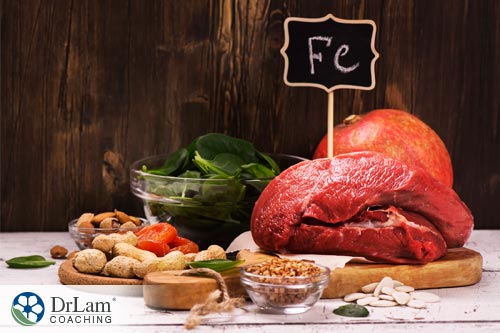 Iron helps your red blood cells transport oxygen to every cell in your body. It is one of the important muscle building nutrients that help promote immune health, regulate metabolism, and boost energy levels. Popeye devoured cans of spinach because they are high in iron. Other sources of iron include fortified whole grains, leafy greens, eggs, poultry, and fish. Being an oxidant, iron supplementation is not recommended if you have advanced AFS.
Iron helps your red blood cells transport oxygen to every cell in your body. It is one of the important muscle building nutrients that help promote immune health, regulate metabolism, and boost energy levels. Popeye devoured cans of spinach because they are high in iron. Other sources of iron include fortified whole grains, leafy greens, eggs, poultry, and fish. Being an oxidant, iron supplementation is not recommended if you have advanced AFS.
Vitamin B12 helps in the formation of red blood cells as well as the conversion of food into energy. Vitamin B12 supports muscle growth by ensuring efficient communication between your brain and muscles. The best sources of this nutrient include milk, marmite, offal, eggs, meat, and poultry. Excessive B12 can cause anxiety and panic attack, especially for those in advanced states of AFS.
Muscle building involves strenuous exercise sessions which in the long run can cause wear on your tissues. A conditionally essential amino acid, glutamine in GlutaMax helps repair the lining of the digestive tract and muscle tissues, especially when your body experiences stress during high-intensity workouts. The nutrient is also important for the healthy functioning of your gut and immune system. The best sources of glutamine include fermented foods, Brussel sprouts, eggs, dairy chicken, and fish.
There is a misconception that those on weight loss programs and looking to build muscles should stay away from carbohydrates. However, the truth is that carbohydrates are also essential muscle building nutrients. As discussed earlier, cortisol is a catabolic hormone, and keeping its level low is crucial for effective muscle growth. Having carbohydrates before and during a workout helps to reduce high cortisol levels. Carbohydrates help in muscle growth, fuel the body, and help rebuild muscles effectively after your workout sessions. The best sources of this nutrient include whole grains, legumes, fruits, and vegetables.
High-intensity workouts produce lactic acid in your body leading to muscle cramps and fatigue. This can hold you back from your next workout session. The non-essential amino acid beta-alanine is known to ease muscle cramps resulting from intense workouts by producing carnosine which balances pH in muscles and curbs lactic acid buildup. Animal protein, plant-based protein such as seaweed, asparagus, watercress, edamame, and turnip greens are rich sources of beta-alanine.
Both vitamin C and E are also important muscle building nutrients. Vitamin C supports collagen production required for muscle repair, whereas vitamin E helps eliminate free radicals produced post workout sessions. Broccoli and many fruits are high in vitamin C, while nut butters are often high in vitamin E.
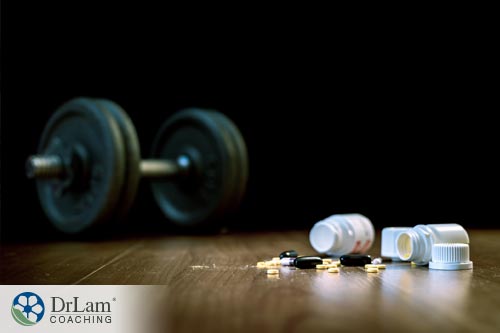 Building muscles involve long training sessions and strenuous workouts that can exert stress on your body leading to fatigue. Muscle building hormones are responsible for muscle growth and strength and help cope with fatigue. Testosterone, growth hormone (GH), insulin-like growth factor (IGF-1), cortisol, epinephrine, and glucagon are muscle building hormones. Muscle growth supplements can give you results, but they have considerable side effects. The better path is to make sure your body has the nutrients it needs to support its muscles, stress response system, and hormones. Protein, calcium, magnesium, vitamin D, iron, potassium, and glutamine are among the top muscle building nutrients that can help you gain muscles, strengthen your body, and boost your endurance.
Building muscles involve long training sessions and strenuous workouts that can exert stress on your body leading to fatigue. Muscle building hormones are responsible for muscle growth and strength and help cope with fatigue. Testosterone, growth hormone (GH), insulin-like growth factor (IGF-1), cortisol, epinephrine, and glucagon are muscle building hormones. Muscle growth supplements can give you results, but they have considerable side effects. The better path is to make sure your body has the nutrients it needs to support its muscles, stress response system, and hormones. Protein, calcium, magnesium, vitamin D, iron, potassium, and glutamine are among the top muscle building nutrients that can help you gain muscles, strengthen your body, and boost your endurance.
If you have AFS, it is important to seek out an AFS specialist prior to starting workouts and as exercising could worsen adrenal fatigue. Often times, workouts push people over the edge and into adrenal exhaustion, which is why it is very important if you are suffering from adrenal fatigue to talk with a professional first to get started on the right recovery process before exploring recovery on your own.
However, if your body is healthy enough for exercise, providing your body with muscle growing nutrients can be a safe and effective method to grow muscles and strengthen your body.
© Copyright 2020 Michael Lam, M.D. All Rights Reserved.
Consider buying foods rich in muscle building nutrients. Steam or bake the vegetables before tossing them in herbed olive oil to make a hearty meal. You can also sauté the vegetables with a dash of salt and fresh ground pepper or make a delicious curry.
